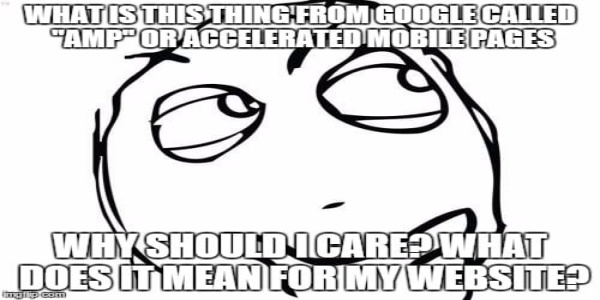Of Google, enforcing a false sense of democracy
Because the web should not be steered by ANY single company.

Have you ever clicked on a link after googling something, only to find that Google didn’t take you to the actual webpage but to some weird Google-fied version of it?
You know, those times when, instead of the web address being the source of the article, it still says “google” in the address bar on your phone?
That’s what’s known as Accelerated Mobile Pages (AMP). AMP is a Google project, announced in late 2015 with the promise of providing publishers a faster way of serving and distributing content to their users, more adaptable approach than Apple News and Facebook Instant Articles.
Almost from the beginning, AMP has been considered harmful by many, me included, and over time it gave even more reasons to avoid it.
Recently, Google announced that the AMP project would be run through an external foundation. A post by the Electronic Frontier Foundation explains that, albeit this is an improvement over the past, it still is not good.
What happened is that, instead of creating web standards starting with, and inside, the larger web community, one giant conglomerate, that already controls the largest mobile OS, web browser, and search engine in the world (way too opaquely, too), just did things as it pleased, then came asking for a rubber stamp.
As the EFF post says, this “only enforces a false sense of democracy that didn’t exist”. And since what’s being regulated here is not a Bingo hall, but a crucial part of one of the most critical infrastructures of the planet, nobody should be happy. Especially the people you voted to take care also of these things. Tell them.
Who writes this, why, and how to help
I am Marco Fioretti, tech writer and aspiring polymath doing human-digital research and popularization.
I do it because YOUR civil rights and the quality of YOUR life depend every year more on how software is used AROUND you.
To this end, I have already shared more than a million words on this blog, without any paywall or user tracking, and am sharing the next million through a newsletter, also without any paywall.
The more direct support I get, the more I can continue to inform for free parents, teachers, decision makers, and everybody else who should know more stuff like this. You can support me with paid subscriptions to my newsletter, donations via PayPal (mfioretti@nexaima.net) or LiberaPay, or in any of the other ways listed here.THANKS for your support!